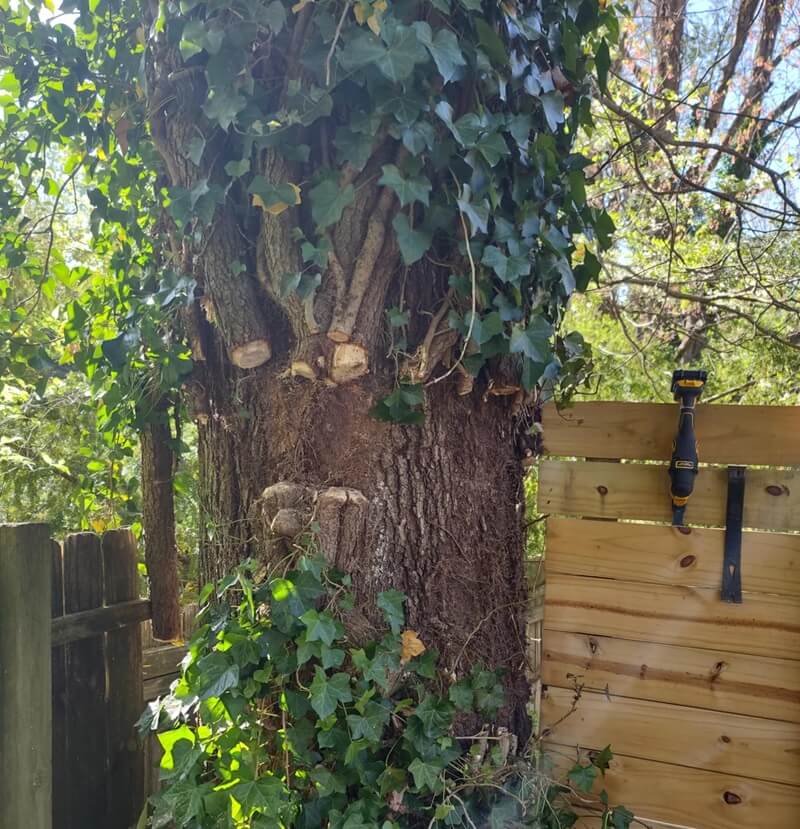A homeowner dealing with a jungle's worth of invasive plants finally reached the turning point of their battle when they cut the "mother stem" of an enormous English ivy vine.
They posted a photo of their success on the subreddit r/Gardening, saying, "[We've] been fighting invasive plants since we bought the house. Left this guy for last."
Commenters cheered along with them. "As a wisteria fighter this makes me feel so good to see," one said, referring to the similarly problematic vine that has Japanese and Chinese variants considered highly invasive in the U.S. "When you can get the mother vines it's the best feeling."

English ivy is often planted by unknowing amateur gardeners who don't realize the harm they are doing to their environment by deliberately installing an invasive species.
"Do we have a name for who we can blame English Ivy on?" one person said sarcastically. "Did it have a champion who pushed for its inclusion in gardens and as ground cover? I'm not looking to send hate mail but I do need another curse to emit as I work to remove the ivy."
"Ahh, yes. My nemesis," another joked.
But this ivy is just one of many invasive species commonly planted in backyards and gardens, which then explode with growth and end up stealing vital resources from — or strangling — native plants. And almost always, it's the next homeowner who's left to deal with the aftermath.
"I'm on year three of my wisteria battle from the previous home owners," one person shared.
"I feel this. We had to battle wisteria, poison ivy, English Ivy, and periwinkle for years before we finally got them under control," another agreed.
And invasive species aren't just frustrating to deal with for homeowners; they're costly to the entire global economy. One recent report found that approximately 3,500 geographically invasive plants and animals cost the global economy $423 billion every year.
For these reasons, several states have passed mandatory rules dictating that gardeners must apply for a special permit to plant certain invasive species, like bamboo. Some are addressing the issue creatively by creating competitions for catching and cooking invasive fish or turning them into kitchen and bar ingredients. Other places have banned certain invasive species entirely.
Instead, homeowners are better off upgrading their yard with native plants instead, which are easier and less expensive to maintain (and won't cause a problem for the next residents).
Join our free newsletter for easy tips to save more, waste less, and help yourself while helping the planet.









